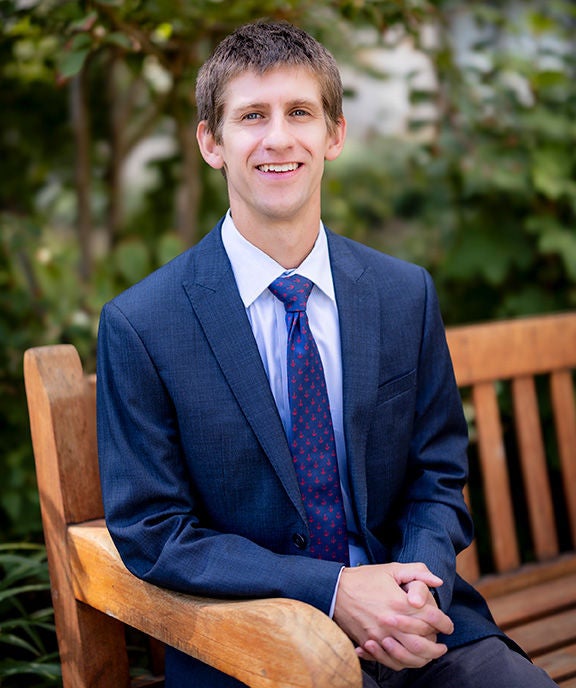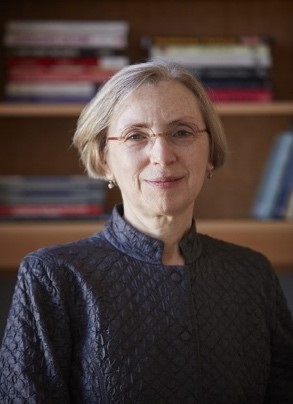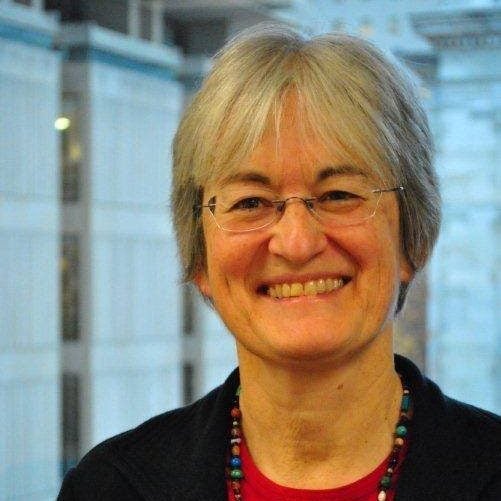Initiative on Health and Homelessness
The Initiative on Health and Homelessness (IHH) fosters a network of researchers and practitioners dedicated to inspiring and supporting emerging public health professionals in addressing health and homelessness, providing resources to drive real-world change to improve the health and lives of unhoused individuals.
677 Huntington Avenue
Kresge 4th Floor
Boston, MA 02115
Steering Committee
The Initiative on Health and Homelessness includes a steering committee of experts who help guide the program’s planned activities and future directions.

Thomas Byrne joined the Boston College School of Social Work faculty in 2025. He believes that safe, stable, and decent housing is fundamental to a fulfilling and dignified life, and his research focuses on the causes, consequences, and policy solutions to housing insecurity and homelessness.
Using quantitative and quasi-experimental methods, Dr. Byrne studies how housing market dynamics and interventions affect community-level homelessness rates, the effectiveness of prevention-focused approaches, and the links between housing insecurity, assistance, and health. Through collaborations with the Department of Veterans Affairs, he has examined efforts to prevent and end homelessness among military veterans.
Dr. Byrne serves on the editorial board of Health Services Research and the National Alliance to End Homelessness’ Research Advisory Council. Locally, he is a board member of Hearth, Inc., and has advised the City of Boston’s Mayoral Advisory Council to End Homelessness.
In the classroom, he equips social work students with policy analysis skills to drive real-world change and mentors doctoral and post-doctoral scholars as independent researchers.

Denise De Las Nueces, MD, MPH, is a board-certified internal medicine physician and addiction medicine specialist with a focus on vulnerable populations. She received her Bachelor of Arts from Columbia University and subsequently studied at Harvard Medical School, where she received an MD in 2008. She trained at the Brigham and Women’s Hospital Internal Medicine Residency Program from 2008 to 2011. Upon completion of residency training, Dr. De Las Nueces was granted a Commonwealth Fund Mongan Fellowship in Minority Health Policy, completing a Master of Public Health degree in Health Policy from the Harvard School of Public Health in 2012. She joined the Boston Health Care for the Homeless Program (BHCHP) in 2012. Dr. De Las Nueces was recognized in 2014 as one of Boston’s Top 40 under 40 Leaders by the Boston Business Journal and received a 40 Under 40 Leaders in Health Award in 2018 from the National Minority Quality Forum. She now serves as Interim CEO and Chief Medical Officer of BHCHP and is an Assistant Professor of Medicine at Boston University Chobanian & Avedisian School of Medicine

Karen Emmons is a Professor of Social and Behavioral Science at the Harvard T.H. Chan School of Public Health. She is behavioral scientist with a strong track record of funded research in community-based approaches to cancer prevention in a variety of settings that serve under-resourced communities, including low income housing and community health centers. Her work targets a range of cancer risk factors, including nutrition, physical activity, sun exposure, tobacco and second-hand smoke exposure, and cancer screening. Her research teams have included interdisciplinary perspectives on cancer risk reduction and health disparities, with a focus on multiple cancer risk behaviors. Dr. Emmons has a strong track record as a mentor, and is a past recipient of a mid-career K award focused on dissemination an implementation research to reduce cancer disparities. Her current work and writing focuses heavily on implementation science, particularly in community health settings, and she has been actively involved in national efforts to develop implementation research and training programs. She currently serves as the Faculty Director of the Community Engagement Program for Harvard’s Clinical Translational Science Award. Dr. Emmons is Past-President of the Society of Behavioral Medicine, and a member of the National Academy of Medicine.

Bob Heckart’s work on homelessness began with a simple but profound realization. In 1982, at a Yorkville Emergency Alliance board meeting, he and his colleagues planned to distribute donated winter coats immediately—only to be stopped by the donor, who explained they had to wait until November because people experiencing homelessness don’t have closets. “That was a seminal moment,” Bob recalls.
After a distinguished career as a partner at Davis Polk & Wardwell LLP, structuring international financial transactions, Bob retired in 2010 and transitioned into public service. He worked as a Senior Adviser to Senator Kirsten Gillibrand (D-NY) and then Senior Counsel to Senator Carl Levin (D-MI). His passion for addressing homelessness deepened when he joined Harvard’s Initiative on Health and Homelessness (IHH) in 2019 as a Senior Adviser and Steering Committee member.
Bob’s engagement with youth homelessness began when he met Harvard undergraduates founding Y2Y Harvard Square, the first student-run shelter for young adults experiencing homelessness. He played a key role in forming Y2Y Network, a 501(c)(3) to support the shelter’s operations. He later assisted Yale students in launching a similar shelter in New Haven and worked with the founders of Breaktime Café, an initiative providing job training for youth experiencing homelessness.
Bob holds a J.D. from Harvard Law School and a B.A. from Yale University.

Jennifer Molinsky is the Director of the Housing an Aging Society Program and a Lecturer at the Harvard Graduate School of Design. She leads research on the housing challenges facing an aging population, including affordability, accessibility, community livability, and the connections between housing, services, and health
She has authored major reports such as Housing America’s Older Adults 2023, Advancing Housing and Health Equity for Older Adults: Pandemic Innovations and Policy Ideas, and The State of the Nation’s Housing for Older Adults, among others. Her work also explores the role of housing in well-being in older age.
Jennifer serves on the Steering Committee for the Harvard T.H. Chan School of Public Health’s Initiative on Health and Homelessness (IHH), where she contributes her expertise on housing policy and its intersection with health and homelessness. She also co-directs the Healthy Places Design Lab at the Graduate School of Design, focusing on how the built environment impacts public health.
She holds a Ph.D. in Urban Planning from MIT, a Master’s in Public Affairs–Urban and Regional Planning from Princeton’s Woodrow Wilson School, and a B.A. from Yale University.

Rajarshi Mukherjee is an Associate Professor in the Department of Biostatistics at the Harvard T.H. Chan School of Public Health. His research focuses on causal inference in observational studies, particularly in modern data settings. He studies the statistical challenges of analyzing environmental mixtures and their effects on cognitive development in children and cognitive decline in aging populations. His work also includes applications in large-scale genetic association studies, statistical methods to quantify the effects of climate change on human health, and understanding the impact of homelessness on health.
He serves on the Steering Committee for the Initiative on Health and Homelessness (IHH) at Harvard T.H. Chan School of Public Health, contributing his expertise in biostatistics to research addressing homelessness and health disparities.
Before joining Harvard, he was an Assistant Professor in the Division of Biostatistics at UC Berkeley and a Stein Fellow in the Department of Statistics at Stanford University. He earned his Ph.D. in Biostatistics from Harvard University, advised by Professor Xihong Lin.
Dr. Mukherjee completed his B.Stat (Hons) and M.Stat (specializing in Mathematical Statistics and Probability) at the Indian Statistical Institute, Kolkata.

Jim O’Connell, MD (he/him), serves as the President of Boston Health Care for the Homeless Program and is an Assistant Professor of Medicine at Harvard Medical School. Dr. O’Connell received his medical degree from Harvard University in 1982 and completed residency in Internal Medicine at Massachusetts General Hospital. In 1985, he began full-time clinical work with homeless individuals as the founding physician of the program. He established the nation’s first medical respite program in 1985, with 25 beds nested within the Lemuel Shattuck Shelter. Working with the MGH Laboratory of Computer Science, Dr. O’Connell designed and implemented the nation’s first computerized medical record for a homeless program.
Dr. O’Connell served as the National Program Director of the Homeless Families Program of the Robert Wood Johnson Foundation and the U.S. Department of Housing and Urban Development. Dr. O’Connell is the editor of The Health Care of Homeless Persons: A Manual of Communicable Diseases and Common Problems in Shelters and on the Streets. His articles have appeared in the New England Journal of Medicine, the Journal of the American Medical Association, Circulation, the American Journal of Public Health, the Journal of Clinical Ethics, and several other medical journals. His first book, <a href="https://www.bhchp.org/stories-shadows" target…

Natalie Slopen, ScD, is an associate professor of social and behavioral sciences at Harvard T.H. Chan School of Public Health and an affiliated faculty member at the Center on the Developing Child at Harvard University. Previously, she served six years on the faculty in the department of epidemiology and biostatistics at the University of Maryland, College Park, School of Public Health. As a social epidemiologist, Dr. Slopen works on a range of studies on topics related to the social and structural determinants of children’s health and health disparities across the life course. Her research has focused on the role of socioeconomic disadvantage, racism, housing, and other adverse experiences for children’s mental and physical health outcomes. Using integrated perspectives and methods from epidemiology, psychology, sociology, and medicine, Dr. Slopen is particularly interested in identifying modifiable social and structural determinants of health inequities to inform systemic intervention priorities addressing disparities in children’s well-being.

Nancy Turnbull is Senior Associate Dean for Educational Programs and a senior lecturer in health policy at the Harvard T.H. Chan School of Public Health. In this role, Nancy helps to lead the school’s MPH and DrPH programs, field education and practice, and a range of other school-wide educational activities. She is also the director of educational policy in the Department of Health Policy and Management and serves as the faculty field of study director for the MPH65 program in health policy.
Nancy’s professional interests include health insurance, insurance regulation, and expanding health care coverage. At Harvard Chan, she has taught courses on provider payment systems, and managing health care costs, and currently teaches the applied practice and integrative learning experience course for the MPH65 in health policy students. Nancy has been honored with several Harvard Chan Student Mentoring Awards.
Earlier in her career, Nancy was the First Deputy Commissioner and Deputy Commissioner of Health Policy at the Massachusetts Division of Insurance. She has also held senior leadership positions in health philanthropy and Medicaid managed care. Nancy has served since 2007 as the consumer representative on the board of the Commonwealth Health Insurance Connector Authority, the health insurance marketplace in Massachusetts. She consults to a range of consumer health advocacy groups and also serves on several other nonprofit boards and advisory groups.